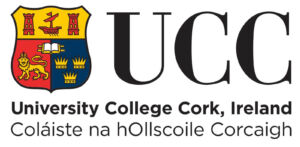MA in Society and Health
Key points
Health and well-being are critical issues in society. The Master of Health and Society is a new and innovative program that addresses health and its determinants from a rich interdisciplinary perspective. It is aimed at graduates of a wide range of disciplines in the sciences and humanities and is designed to provide a unique and critical analysis of contemporary discourses and problems from an individual, social and global perspective.
This course is about health and not exclusively about health. Health is both a medical and a social problem. Students taking this course will explore health from a variety of different angles. The unique nature of this course is its interdisciplinary approach, bringing together experts in health topics from a wide range of disciplines and faculties, including medicine, epidemiology, philosophy, ethics, sociology, social policy, and law. The Master of Health and Society is aimed at graduate students in Philosophy, Epidemiology and Public Health, Sociology, Geography and related disciplines and graduates with continuing education needs, for example, managers working in the Health sector.
Program Description
The Master of Health and Society aims to support the development of a set of advanced skills necessary in the practice and management of health and healthcare: practice skills, research skills, critical appraisal skills, and clinical reasoning skills.
Students will take three core modules on the following topics: Public Health Principles and Practice (10 credits); Critical Public Health (10 credits); Philosophy and Health (10 credits). They will then choose from a variety of modules offered by different disciplines, including law, sociology, social policy, applied psychology, epidemiology, and public health and philosophy. Finally, students will be asked to present a minor dissertation, of approximately 10,000 words.
At the end of the course, students are expected to demonstrate in-depth experience in relation to the philosophical, epidemiological, sociological, and psychological factors that contribute to health and well-being. This master’s degree will open up new career options in the health sector, as well as research opportunities in the humanities and social sciences.
Program structure
Students earn 90 credits as follows:
Holders of the Bachelor of Public Health or Bachelor of Public Health and Public Promotion will be exempt from the EH6025 principles and Public Health Practice if they complete the Master of Health and Society within five years from the completion date success of any of the aforementioned degrees. The learning outcomes for EH6025 have been covered in the following bachelor modules; currently EH1005, EH2005, EH4007, EH4005, SS4000 and GV4000.
Graduate Certificate in Health and Society (NFQ Level 9, Minor Award)
Students who pass taught modules worth at least 30 credits (but less than 60 credits) can exit the program and receive a Postgraduate Certificate in Health and Society.
Graduate Diploma in Health and Society (NFQ Level 9, Grand Prize)
Students who pass the taught modules worth 60 credits can exit the program and receive a Postgraduate Diploma in Health and Society.
Course practices
There will be approximately 9 hours of lectures / seminars per week. Students are expected to do an average of 20 hours of reading per week, in addition to the time they spend in class.
Evaluation
Each module will be assessed by continuous assessment, an end-of-semester exam, or a combination of both. The continuous assessment element will take the form of essays and assignments, including class presentations. There will also be a senior dissertation of approximately 10,000 words.
Why choose this course
This is an interdisciplinary course that pushes the boundaries between the disciplines of medicine, the social sciences, and the humanities. While health is the focus, students will learn how to approach this complex topic from a variety of methodologies: medical, sociological, philosophical, psychological, and legal.
Career opportunities
Students will acquire a variety of analytical skills that allow them to analyze health from many different perspectives. This master’s degree will enhance the opportunities to work in the health sector, at all levels. Careers in the private sector, especially pharmaceutical companies, will also be a possibility for graduates of this program.
Admission Requirements
Applicants must have a Second Class Honors Grade I in a primary honors degree (NFQ, Level 8) or equivalent in the disciplines of Philosophy, Public Health, Sociology, Social Sciences, Geography, Government, Politics, Law, Medicine, Nursing and other programs for health professionals.
Candidates who have less than a second-class honors grade I level may also be considered under recognition of prior learning (RPL), following a review of their individual qualifications and experience and based on information provided in a supplemental statement and / or interview acceptable to the department selection committee. The admission of such applicants will be subject to the approval of the Faculty of Arts, Celtic Studies and Social Sciences.
English requirements
All graduate applicants whose first language is not English must provide evidence of English language proficiency. Certain tests (eg, IELTS, TOEFL, and Pearson PTE) have a three-year time limit on their validity and will apply. English language tests must be taken no more than three years prior to the start of a program.
Please note that Secure English Language Test (SELT) scores must be obtained in a single session of the corresponding qualification (for example, IELTS and TOEFL). We will not accept a combination of individual component scores from multiple tests.
Applicants who are nationals of a country that, according to the UCC, is predominantly English-speaking, or who have a degree or equivalent qualification that was taught in a country that is considered predominantly English-speaking, will normally be assumed to have met the language requirements of the UCC. However, in some circumstances, applicants may be required to present evidence of an English language qualification to satisfy the college program entry requirements.
Más de 100 Estudiantes han confiado en nosotros
Make your language trip abroad combining language learning with cultural trips


